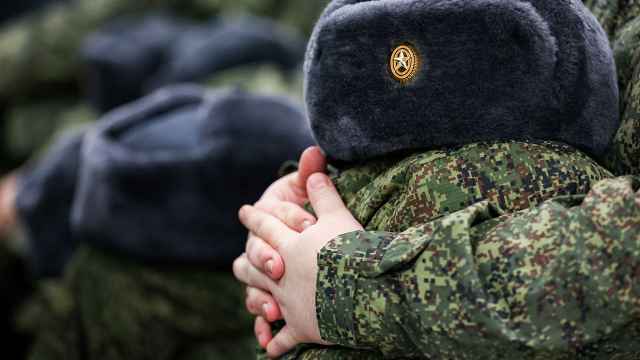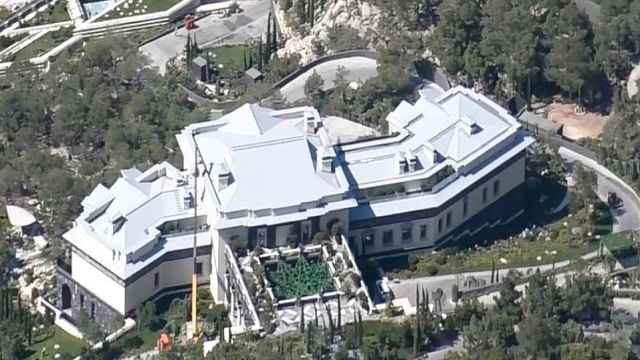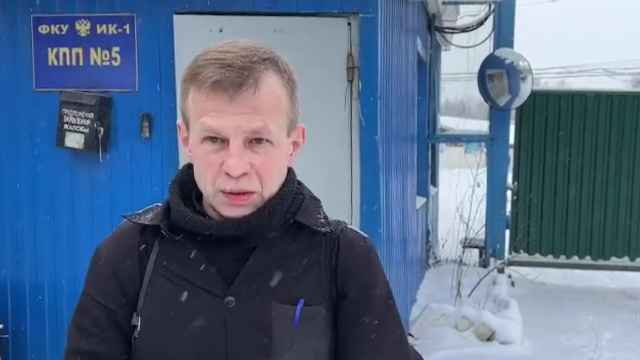Increasing numbers of Russian pensioners are opting for a comfortable retirement by purchasing real estate abroad, according to a recent report. Cashing in on relatively high value property here generates more than enough capital to buy, and the low cost of living in some countries means a Russian pension is enough to live off.
Every year, about 3,000 pensioners relocate permanently overseas, according to analysts at real estate firm Sfera Group, while 160,000 regularly spend long periods — usually the winter season — residing in other countries.
The trend is growing. In 2014 and 2015, emigration among pensioners could increase by 30 to 40 percent, analysts estimate. About a third of Russian pensioners own real estate in large cities and are in the financial position to buy property in Bulgaria, Turkey or Spain, according to Sfera Group.
"Among my clients a new group has taken shape," said Igor Indriksons, founder of website indriksons.ru: "rich pensioners desiring to relocate overseas. Many sell dachas or spare apartments. Some have real estate bought for them by their children." A lack of statistics makes it impossible to track the exact quantity of relocating pensioners, he said, but the number is rising each year.
Georgy Kachmazov, who manages foreign real estate website tranio.ru, has also noticed an upswing in demand among old people, most of whom have their eye on Bulgaria.
The average cost of a square meter of Bulgarian real estate was $600 in the third quarter of 2013, according to the country's statistics service, Kachmazov said.
A modest apartment on the seaside in a small town is slightly more expensive, but the price can be negotiated down to $680, said Indriksons. A similar apartment in a small seaside town in Turkey would cost from about $1,090 to about $1,630 per square meter, he said, while in Spain the cost would be $1,770.
These price levels are low enough to be accessible for Russian buyers. According to real estate website World of Apartments, a 54 square meter apartment in the regional city of Vladimir was selling for 3 million rubles ($91,000), or 55,500 rubles ($1,680) per square meter in October. In Samara the same flat would have fetched 3.4 million rubles, while in Novosibirsk the seller would have received 3.6 million rubles. Residents of the Moscow region with a similar apartment could bank on $141,000, and those living in Moscow itself could sell for $458,000, according to World of Apartments.
In comparison, a small apartment on the Bulgarian or Turkish seaside would cost between $27,000 and $41,000, said Natalia Snegireva of Sfera Group, which specializes in the sale of property overseas.
Pensioners in Moscow could even consider options in France or Italy, said Kachmazov. For example, homes in the southern French city of Montpellier start from $394,000, and a house in the Tuscan countryside costs an average of $476,000.
A state pension of 10,000 to 15,000 rubles ($300 to $455) is more than enough to live on in Bulgaria and Turkey, and sufficient in Spain, said Snegireva.
In provincial Bulgaria, the average wage is $680 a month; in Turkey, it is $1,090; and in Spain, $1,770, Indriksons said. "On that money, people feed their families, finance their children's educations, and pay utilities bills."
Utilities bills are not particularly high, said Kachmazov. In Bulgaria, for example, in the winter utilities would cost from $135 to $200, and only from $100 to $135 in the summer.
A carefree life abroad could also be provided by a free apartment at home, said Snegireva. In the regions, an apartment can be rented out for between 5,000 and 15,000 rubles per month, while in Moscow monthly rent income would be 30,000 to 40,000 rubles.
A Message from The Moscow Times:
Dear readers,
We are facing unprecedented challenges. Russia's Prosecutor General's Office has designated The Moscow Times as an "undesirable" organization, criminalizing our work and putting our staff at risk of prosecution. This follows our earlier unjust labeling as a "foreign agent."
These actions are direct attempts to silence independent journalism in Russia. The authorities claim our work "discredits the decisions of the Russian leadership." We see things differently: we strive to provide accurate, unbiased reporting on Russia.
We, the journalists of The Moscow Times, refuse to be silenced. But to continue our work, we need your help.
Your support, no matter how small, makes a world of difference. If you can, please support us monthly starting from just $2. It's quick to set up, and every contribution makes a significant impact.
By supporting The Moscow Times, you're defending open, independent journalism in the face of repression. Thank you for standing with us.
Remind me later.





